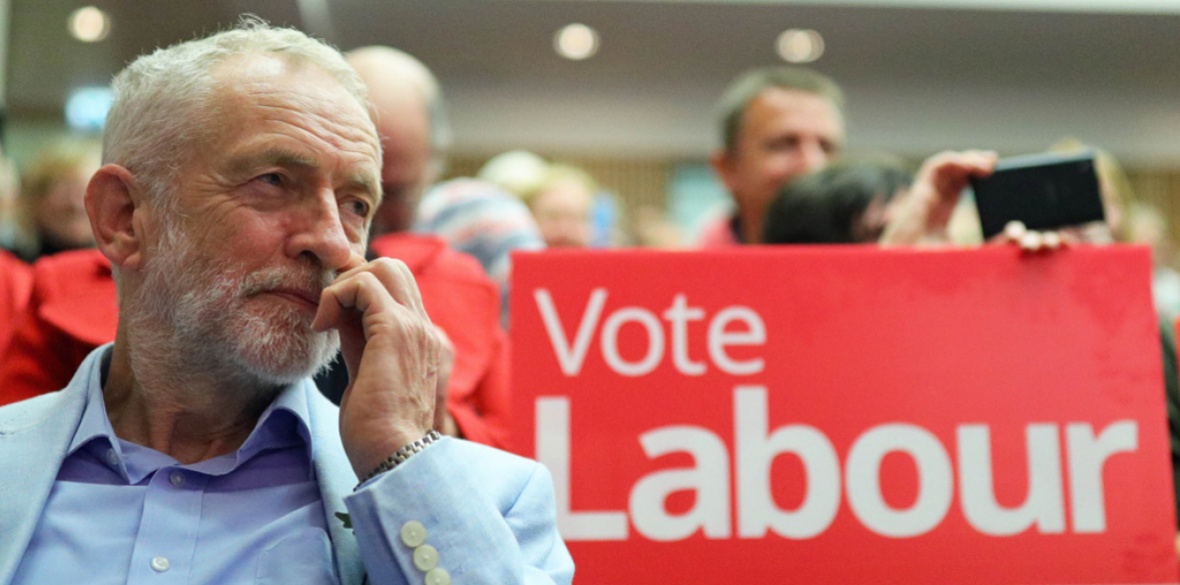This is the last article you can read this month
You can read more article this month
You can read more articles this month
Sorry your limit is up for this month
Reset on:
Please help support the Morning Star by subscribing here
A DAFT bloke on BBC Question Time went off on one about Labour’s plan to tax people a bit more on anything they earn over £80,000 a year.
This adds a sinister note to Jeremy Corbyn’s new persona as a latter-day despot, a new Sheriff of Nottingham descending from the castle to extort the last groat from honest toiling folk.
The truth is that Robin Hood Corbyn and Big John McDonnell do intend to extract some extra sovereigns from the better-off end of the comfortably-off and a fair bit more from the very rich.
In any reasonable film script this makes the Labour leaders Hollywood heroes.
Only a King John lounging in an ermine-lined tent would think this an outrage against the established order.
The fact is that whatever trade or calling the Question Time pundit follows, he has to be on £40 an hour, five days a week for a full working year to pull anything like that kind of money. This puts him in the upper quartile of earners.
According to the Office for National Statistics, the median earning for people in full-time work are up a bit to around £569 a week, or about £29,500 a year.
This means that there are millions who exist on much, much less and who also work in jobs that do not guarantee a full week’s work.
Of course women earn a fair bit less and young workers even less.
Ninety-five out of 100 people will pay no extra income tax under Labour’s new tax regime and people need to be earning £150,000 a year before they move into the next tax band.
Government statistics are often criticised for obscuring the class realities of Britain’s occupational structure but the ONS figures show that the the highest-earning occupational grouping — consisting of chief executives and senior officials — clocked up median annual earnings in 2018 of £97,083.
The median earnings of no other occupational grouping comes anywhere near the £80,000 threshold.
The focus on the mildly progressive income tax system sometimes masks the less visible fact that much of the government’s revenue comes from regressive consumption taxes which fall unequally on the less well-off.
It is extremely unlikely that the consumption patterns of the rich are much affected by the imposition of VAT, but this bears very heavily on the lower-paid.
Right-wing commentators have shifted the grounds of their assault on Labour’s programme to concentrate not on the scope of its ambition — they know better than to make Labour’s offering the subject of a detailed interrogation for fear that voters might find it irresistible.
The line being taken is that Labour’s spending and taxation plans are unlikely to work.
At one level this hinges on the well-worn and counter-intuitive notion that the higher the levels of taxation on the rich, the lower the tax take.
This depends on the absolutely true fact that as taxes on the rich go up the more they will structure their affairs to avoid paying taxes.
It is extremely likely that among the thousands of government employees in HM Revenue and Customs there are not a few who might relish the professional challenge entailed in devising measures to mitigate this risk.
The distinctive feature of Labour’s tax and spend proposals lies in their boldness — both in their conception and in their application the reordering of government priorities to substantially improve the lives and life chances of working people, particularly the young.
There is now a real opportunity to shift the ground on which political debate is conducted. It is this that our rulers fear.












